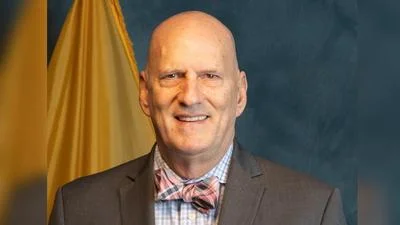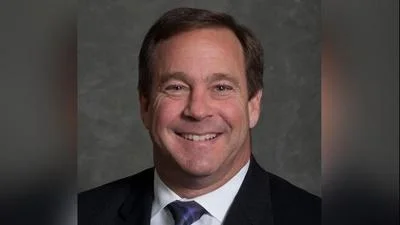Senator Robert Menendez | Senator Robert Menendez Official U.S. Senate headshot
Senator Robert Menendez | Senator Robert Menendez Official U.S. Senate headshot
WASHINGTON, D.C. – U.S. Senator Bob Menendez (D-N.J.) led the reintroduction today in the Senate of the bipartisan Firefighter Cancer Registry Reauthorization Act, which would reauthorize the program and raise the authorized funding level. The registry, which was enacted in 2018 and officially went online earlier this year, is the largest effort undertaken to understand the risk of cancer among U.S. firefighters. The original legislation directed the CDC to develop a database of firefighters diagnosed with cancer and to monitor and study the relationship between career-long exposure to dangerous fumes and toxins and the incidence of cancer in firefighters to determine if there is a link. The registry can be used to develop better protective gear and prevention techniques.
Sen. Menendez played a critical role in making sure Congress passed the Firefighter Cancer Registry Act and that it was signed into law in 2018.
“I am pleased to be leading this bipartisan effort to reauthorize the firefight cancer registry as we work to promote the health and well-being of our first responders all across the nation. Reauthorizing this law would be a huge win for our firefighters, who put their lives on the line every day to help protect us and our loved ones,” said Sen. Menendez. “Firefighters not only encounter smoke and flames when they run into burning buildings, but also dangerous fumes, toxins, and known carcinogens released during a fire that pose additional health risks. The ultimate goal is to prevent cancer in firefighters by developing better ways of protecting, and reauthorizing this law will help us better comprehend their cancer risks.”
The Firefighter Cancer Registry Reauthorization Act will reauthorize the program for an additional five years and increase the annual authorization level to $5.5 million, in line with the program’s current appropriation. The additional funding level will support critical cybersecurity and encryption measures to protect sensitive personal data, as well as help expand enrollment and outreach efforts. This extension and funding increase will allow the CDC to be able to continue to collect the data necessary to study the occupational risks of firefighters.
Joining Senator Bob Menendez (D-NJ) in supporting the legislation are Lisa Murkowski (R-Alaska), Deb Fischer (R-Neb.), Sen. Marco Rubio (R-Fla), Amy Klobuchar (D-Minn.), Jon Tester (D-Mont.), and Sherrod Brown (D-Ohio).
“Most people don’t realize that on top of risking their lives for our safety, cancer is an added danger for firefighters due to frequent exposure to toxins and smoke. I originally helped shepherd the Firefighter Cancer Registry Act into law in 2018 after learning of Anchorage firefighter Andy Mullen, a strong advocate for firefighter concerns, who ultimately lost his life from a battle with cancer caused by exposure to toxins from electrical wires during a brush fire,” said Sen. Murkowski, co-chair of the Congressional Fire Services Caucus. “The reauthorization of this legislation will work in tandem with a number of policy initiatives I’ve pushed this Congress – including the Fire Grants and Safety Act and the FIRE STATION Act – to better prepare and protect the brave men and women who fight fires.”
“Our firefighters always have our backs when we need them the most. We need to do our part here in Congress to continue supporting them. Reauthorizing the Firefighter Cancer Registry will further shine a light on solutions to protect first responders from the risk of cancer,” said Sen. Fischer.
“We all know that firefighters do lifesaving work. They are there to protect us during house fires, car crashes, medical emergencies and so much more. But too often, firefighters are exposed to carcinogens that can lead to serious health risks,” said Sen. Klobuchar. “This bipartisan legislation will make sure we continue to have the important and relevant information we need to safeguard the health and safety of those who put their lives in danger every day to keep us safe.”
“Firefighters always answer the call and put their lives on the line to protect us from dangerous situations. The nature of their work makes them susceptible to multiple health complications, including cancer. I am proud to support this bill that aims to protect these brave first responders from cancer, and I encourage my colleagues in Congress to swiftly pass it,” said Sen. Rubio.
“Every time Montana’s brave firefighters suit up, they are putting their own lives at risk to keep our communities safe,” said Sen. Tester. “We know that firefighters work in dangerous conditions, and it’s our job to make sure they have access to the care and resources they need if they are exposed to carcinogens or injured on the job. Reauthorizing the Firefighter Cancer Registry will support that effort by helping us better understand and address cancer risk for firefighters.”
“While the rest of us run from danger, firefighters run toward it,” said Sen. Brown. “And when they rush into the flames they’re not just putting their lives on the line – even firefighters who come home safely face long-term health risks. There’s a lot more work to do to protect our first responders, but this bipartisan bill is an important step toward reauthorizing the Firefighter Cancer Registry and better understanding the long-term health risks Ohio firefighters face so that we can strengthen our tools to prevent and treat these health threats.”
Firefighters are exposed to a range of harmful toxins, and research has indicated a strong connection between firefighting and an increased risk for several major cancers, such as testicular, stomach, multiple myeloma, and brain cancers. However, due to the limited availability of data, there has historically been large gaps in the information available about the incidence of cancer in firefighters.
Specifically, the Firefighter Cancer Registry:
1. Stores and consolidate epidemiological information submitted by health care professionals related to cancer incidence among firefighters.
2. Makes de-identified data available to public health researchers to provide them with robust and comprehensive datasets to expand groundbreaking research.
3. Improves our understanding of cancer incidence and contributes to the development of more sophisticated safety protocols and safeguards as more data is collected.
1. Requires administrators to consult regularly with epidemiologists, public health experts, clinicians, and firefighters in order to ensure the effectiveness of the registry.
The National Fallen Firefighters Foundation, the Congressional Fire Services Institute, First Responder Center of Excellence, the International Association of Firefighters, the National Volunteer Fire Council, and the International Association of Fire Chiefs support this legislation.
“The National Fallen Firefighters Foundation strongly supports the reauthorization of the National Firefighter Cancer Registry (NFR). The NFR is an important resource to better understand the link between firefighting and cancer, potentially leading to better prevention and safety protocols,” said Chief Ron Siarnicki, the Executive Director of the National Fallen Firefighters Foundation (NFFF). “We are grateful to Senators Menendez, Fischer, Rubio, Klobuchar, Tester, Brown, and Murkowski for introducing this important legislation.”
"Firefighters face an increased risk of cancer due to the hazardous nature of their jobs, which exposes them to toxic chemicals. CFSI thanks Senators Menendez, Murkowski, Fischer, Klobuchar, Rubio, Tester, and Brown for introducing this bill to reauthorize the National Firefighter Registry (NFR), which is compiling vital scientific data to help researchers understand the risk of cancer to firefighters and develop prevention and treatment measures," said Bill Webb. Executive Director of the Congressional Fire Services Institute. "We look forward to Congress reauthorizing the NFR as soon as possible."
“The First Responder Center for Excellence for Reducing Occupational Illness, Injuries and Deaths (FRCE) thanks Senators Menendez, Fischer, Rubio, Klobuchar, Brown, Tester, and Murkowski for introducing legislation to reauthorize the National Firefighter Cancer Registry (NFR),” said Victor Stagnaro, the CEO of the First Responder Center for Excellence (FRCE). “Numerous studies show that firefighters’ exposure during emergency responses may increase their risk of cancer and other chronic diseases. The NFR is a critical tool in understanding the link between firefighting and cancer, and preventing cancer in the future.”
“Cancer is the greatest threat fire fighters, and we must do everything we can to end the scourge of this horrible disease. The National Firefighter Cancer Registry plays an important role in our fight against cancer by helping us gather the data needed to identify trends, risk factors, and other details that guide our cancer prevention, detection, and treatment efforts. The IAFF was proud to work with Representative Pascrell and Senator Menendez in establishing the Registry several years ago, and we applaud them for their continued work to strengthen and expand this Registry. The IAFF urges Congress to reauthorize the National Firefighter Cancer Registry and ensure we have the data needed to eliminate cancer from the fire service,” said Edward A. Kelly, General President of the International Association of Fire Fighters.
“Too many firefighters are contracting and dying from cancer caused by duty-related exposures. Reauthorizing this important registry will improve our understanding why firefighter cancer is occurring at such a high rate and make it easier to prevent, detect, and treat. I thank Senators Menendez, Murkowski, Klobuchar, Fischer, Tester, Brown, and Rubio for their leadership on this important legislation,” said National Volunteer Fire Council Chair Steve Hirsch.
“I thank Senators Menendez, Fischer, Rubio, Klobuchar, Tester, Brown, and Murkowski for introducing this important legislation and appreciate the bipartisan effort to assist our firefighters. We know that cancer is more prevalent in firefighters than in the general population. However, we need more data on the causes of cancer in the fire and emergency service and how to mitigate it. We are glad to see the National Firefighter Registry being established so that we may not only help today’s firefighters but just as important our future firefighting force. This legislation will ensure long-term funding for this important program. We urge Congress to pass this legislation,” said Fire Chief Donna Black, EFO, CFO, the President and Board Chair of the International Association of Fire Chiefs.
“At this point, given his long record of support for the work we do, it comes as no surprise that Senator Menendez is leading this fight to protect the men and women of the fire service,” said Eddie Donnelly, President of the more than 6,000 member New Jersey Firefighters Mutual Benevolent Association (NJFMBA). “We grateful that a bipartisan group of lawmakers are so forcefully acknowledging that the dangers associated with fighting fires don’t stop after we’ve doused the flames, and even more grateful that they are taking concrete steps to do something about that. The Firefighter Cancer Registry Act has saved lives, and in the next five years will save even more.”
In April,Sen. Menendez and Rep. Pascrell joined together with Rep. Rob Menendez (D-NJ-08) at North Hudson Regional Fire and Rescue to discuss the Honoring Our Fallen Heroes Act, which would provide federal benefits for occupational cancer under the Public Safety Officers’ Benefits (PSOB) program to firefighters, first responders, and their families.
In February, Sens. Menendez and Booker (both D-N.J.) announced a combined total of $2,127,844.28 from the Department of Homeland Security (DHS) through its competitive SAFER program to assist three New Jersey fire departments with the hiring, retention and recruitment of firefighters. The AFG program was created in 2000 through the Firefighter Investment and Response Enhancement (FIRE) Act. The SAFER program was established in 2005 by the Staffing for Adequate Fire and Emergency Resources (SAFER) Act.
For the full text of the legislation, click HERE.
Original source can be found here.






 Alerts Sign-up
Alerts Sign-up